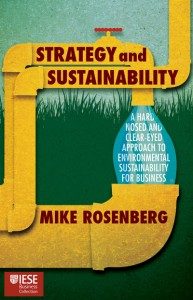In a move consistent with his campaign rhetoric, president elect, Donald Trump has reportedly asked a Washington lobbyist named Myron Ebell to be part of his transition team and to be responsible for the United States Environmental Protection Agency (EPA).
Myron Ebell and the EPA
The EPA was established by Richard Nixon in 1972 and has, for the last 44 years, steadily increased its oversight on the country’s air and water quality and has served as a model for other countries in protecting the natural environment. During the campaign, Trump promised to shut the agency and get rid of all of the “red tape” or regulations that protect the environment and the people and animals who depend on it.

Mr. Ebell works for an outfit called the Competitive Enterprise Institute which is essentially against all forms of government regulation. Ebell, who is not a scientist, has worked on behalf of the fossil fuel industry for almost 20 years to create confusion over climate science and limit any interference in their affairs. Before that he worked at another similar group on behalf of the tobacco industry in an attempt to shield it from regulation.
His central argument is that access to energy is a human right and any controls on it will get in the way of human progress. He has, for example, written against Pope Francis and his encyclical on the environment, Laudato Si, arguing that encouraging the developing world to adopt renewable energy will “will consign billions of people to perpetual energy poverty.” You can read the article here.
Concern and Progress at COP22
 In Marrakesh last week, the United Nations held the 22nd conference of the parties to its convention on climate change and pushed ahead with the agreement reached at its meeting in Paris last year. To date, 111 of the 197 parties to the conference have ratified the Paris accord including the United States.
In Marrakesh last week, the United Nations held the 22nd conference of the parties to its convention on climate change and pushed ahead with the agreement reached at its meeting in Paris last year. To date, 111 of the 197 parties to the conference have ratified the Paris accord including the United States.
In addition to a number of announcements in Marakesh, the 48 countries that make up the Climate Vulnerable Forum committed themselves to join Costa Rica in becoming carbon neutral by mid century.
The U.N. Secretary General, Ban Ki-moon, said the agreement was “unstoppable” and that he was sure that Trump would make a “wise decision” and re-evaluate his commitment to take the U.S. out of the framework.
Business to the Rescue
Another entity which has committed to becoming carbon Neutral is th e German electronics giant Siemens which took advantage of the conference in Marrakesh to re-iterate its commitment and announce a € 100 million program to reduce its energy footprint. Hundreds of large, international companies were present in Marrakesh and a large number of american firms including Levi Strauss and Hewlett Packard have sent an open letter to the president elect urging him to keep the U.S. in the Paris framework and embrace the transition to a low carbon economy.
e German electronics giant Siemens which took advantage of the conference in Marrakesh to re-iterate its commitment and announce a € 100 million program to reduce its energy footprint. Hundreds of large, international companies were present in Marrakesh and a large number of american firms including Levi Strauss and Hewlett Packard have sent an open letter to the president elect urging him to keep the U.S. in the Paris framework and embrace the transition to a low carbon economy.
Given the uncertainty surrounding the new american administration and its apparent embrace of nutty, far right, policies, I think it is more important than ever for business to lead the way.
What that means, however, depends on the specific circumstance of each business and I do not believe that one size fits all or that every business needs to follow in the footsteps of Siemens or others. Instead, as explained in a older post on this site, the leadership of each company needs to look deeply at the strategic issues associated with environmental sustainability and then decide what is the right strategy based on who its shareholders are, what sector it is in and where in the world it is operating.
Back to School ?
 In order to reach a broader audience with that message, IESE Business School has helped me put together an on line course on this very topic and enrollment actually begins today on the Coursera web site. The course is designed to be done in six weeks and more information can be found here.
In order to reach a broader audience with that message, IESE Business School has helped me put together an on line course on this very topic and enrollment actually begins today on the Coursera web site. The course is designed to be done in six weeks and more information can be found here.
It is based on the book, Strategy & Sustainability, which I published last year with Palgrave Macmillan. If you take the course you will receive a discount on the book!

